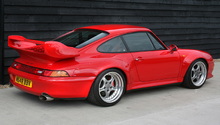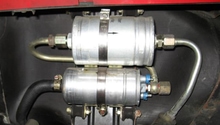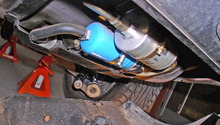Porsche 993: Why is There Gas Smell Coming Out of My Car?
Although the Porsche 993 is engineered to a high degree, it cannot escape common issues. When certain issues arise in the fuel system, fuel odors are imminent. Learn how to diagnose these smells here.
This article applies to the Porsche 993 (1993-1998).
With Porsche 911 models having their fuel tanks in the front truck area and the engines out back, many of the working components of the fuel system are closer to the driver than they are in a traditional car with a front engine layout. In turn, when a problem arises in the fuel system, the driver is more apt to notice a fuel odor while driving the car. Porsche 993 models are notorious for filling the cabin with gasoline fumes, but fret not! With a bit of probing, determining the source of the fuel odor can be quite simple to fix. Read on to learn how to locate the source of that fuel odor.

Materials Needed
- 8 & 10mm sockets
- Ratchet
- Phillips screwdriver or 7mm nut driver
- Two 19mm open-end wrenches
- 17mm open-end wrench
- Floor jack
- Jack stands
The materials needed vary depending on the source of the problem. There are several common areas where fuel odors may be coming from on the 993.
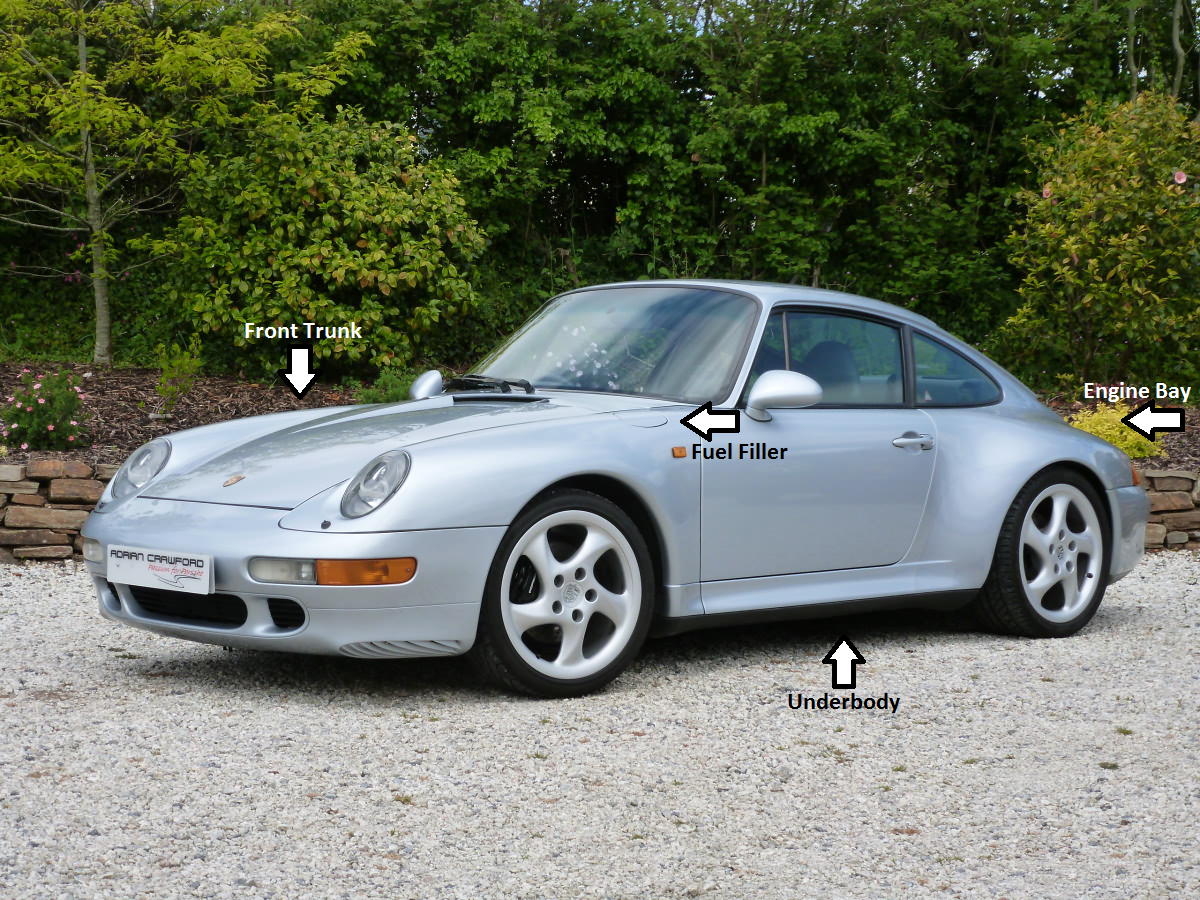
Step 1 – Check fuel cap seal
The fuel cap has a seal to prevent fuel vapors escaping from the fuel tank and can become weathered and deteriorate over time. When this seal no longer creates an air-tight fit against the filler neck, you will experience fuel odor at the filler cap. Inspect the condition of the fuel cap seal by removing the fuel cap from the filler neck.
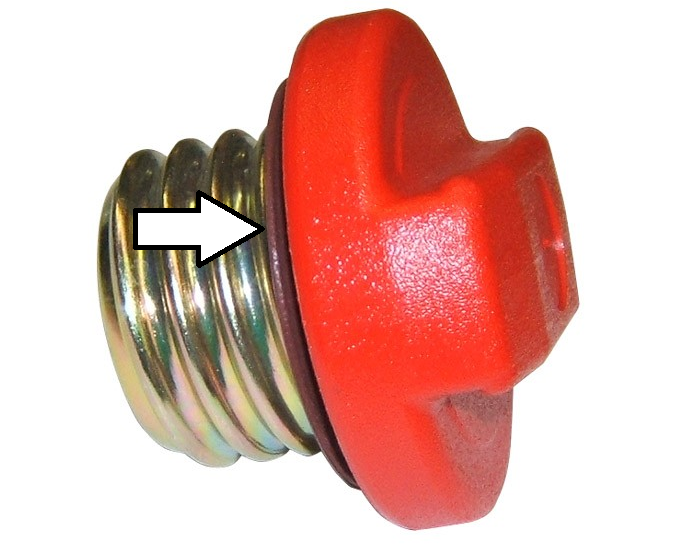
If fuel smell is coming from the front trunk, proceed to Step 2.
Step 2 – Check fuel filler neck and expansion tank hoses
Inspect the fuel filler neck and condition of the fuel hoses located in the front trunk. Over time, the filler neck can warp from the weight of the gas nozzle resting on it while fueling, thus creating a leak. Also, check the tightness of all hose clamp connections. Wet spots will indicate a leak.
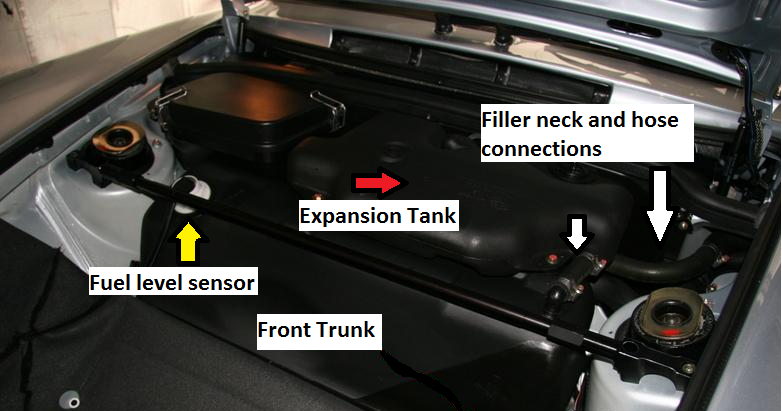
Note: There is one additional hose clamp connection located on top of the fuel tank which can give off a heavy fuel odor. This connection can be found under the expansion tank. Remove expansion tank to access the hose connection.
If the filler neck and hose connections are tight and in good condition, proceed to Step 3.
Step 3 – Check fuel lever sensor seal
As with the fuel cap seal, the fuel level sensor seal can also deteriorate and leak over time. If the seal is bad, you may experience a fuel odor when the fuel tank is completely full. Check the condition of the seal and replace if necessary. (See Figure 3 for location).
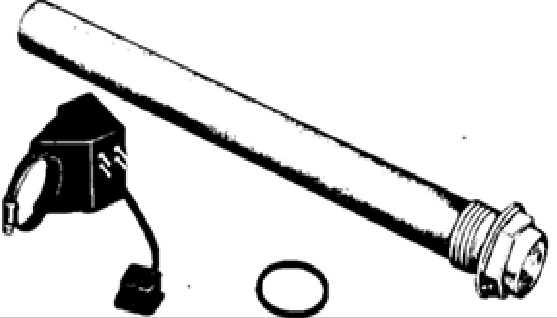
If fuel smell is coming from the underbody, proceed to Step 4.
Step 4 – Check fuel pump connections
If the fuel smell is coming from underneath the car, the likely cause could be the fuel pump or its related fuel hoses. The fuel pump has several rubber hose connections and fuel fittings running to it that have the potential to loosen over time from vibration. If the car sits for long periods of time, these hoses can also corrode and leak. Additionally, if you have recently had a new fuel pump installed, it is possible that all the connections were not properly tightened. Inspect the fuel hoses for deterioration and cracks. Check the tightness of inlet and outlet lines on the fuel pump. It is worth noting that the fuel pump is covered by an inspection plate which can hide fuel leaks unless removed.
(Related Article: Porsche 993: How to Replace Fuel Pump - Rennlist.com)

If there are no leaks present, or the fuel smell is coming from the engine bay, proceed to Step 5.
Step 5 – Check fuel filter fittings
The fuel filter is part of the regular maintenance schedule on a 993. Since it is serviced often and there is little room to work with, the inlet and outlet lines on the fuel filter are sometimes not properly tightened and can leak. Although it may not be leaking enough to cause a puddle of fuel, the filter is hidden far enough back into the engine compartment that a slow leak could be the source of the fuel odor you are smelling. Check the tightness of both fuel filter fittings. Also, inspect the hard fuel lines to ensure there are no cracks.
(Related Article: Porsche 993: How to Replace Fuel Filter - Rennlist.com)

Related Discussions
- 993 Gas Smell - Did You Fix It? - Rennlist.com
- Gas Smell Frunk Fixed! - Rennlist.com
- Fuel Filler Neck Part # - Rennlist.com


